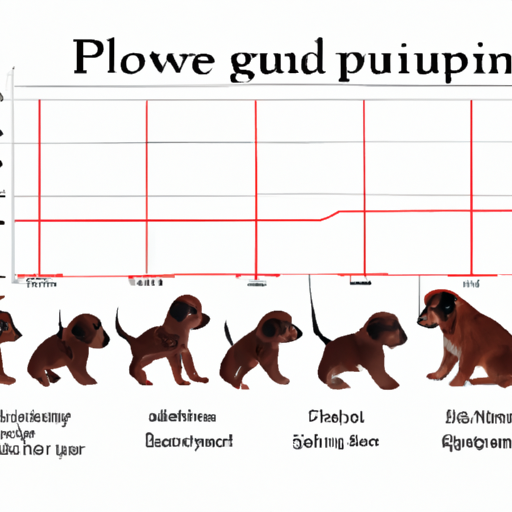Just as humans, puppies go through different stages of growth and development, each with its own unique needs and challenges. This comprehensive guide will help you understand what to expect at each stage and how best to support your furry friend on his journey to adulthood.
Neonatal Stage: Birth to 2 Weeks
Your puppy’s journey begins in the neonatal stage. At this stage, puppies are completely dependent on their mother for nutrition, warmth, and waste elimination.
Key highlights:
- Puppies are born blind and deaf.
- They spend most of their time sleeping and eating.
- Their weight will double in the first week.
Remember, if you are caring for a newborn puppy, keep them warm, fed, and clean.
Transitional Stage: 2 to 4 Weeks
The transitional stage is a time of rapid development.
Key highlights:
- Puppies’ eyes and ears open and they start to explore their surroundings.
- They begin to exhibit social interaction with siblings and mother.
- They start to walk, wag their tails, and bark.
This is a critical time for socialization, so handle them gently and often.
Socialization Stage: 4 to 12 Weeks
The socialization stage is when puppies learn about the world around them.
Key highlights:
- They start to interact more with their siblings and other dogs.
- Puppies learn to control their bite and start understanding pack order.
- They are ready to be weaned off their mother’s milk.
This is the best time to start basic training commands and introduce them to different environments and experiences.
Juvenile Stage: 3 to 6 Months
The juvenile stage is the “toddler phase” where your puppy will be a bundle of energy.
Key highlights:
- Puppies start teething and chewing.
- They begin to understand hierarchy within other dogs.
- They have a high energy level and need lots of exercise.
Remember to provide plenty of chew toys and continue with their socialization and training.
Adolescent Stage: 6 Months to 1 Year
This is the teenager phase, a challenging time for many dog owners.
Key highlights:
- Puppies hit puberty and may start challenging authority.
- They may become more independent and less responsive to commands.
- They reach sexual maturity and females may start their first heat.
Stay patient and consistent with your training. This is just a phase and it will pass.
Adult Stage: 1 Year and Older
Your puppy is now an adult and their personality will start to shine.
Key highlights:
- Dogs are fully grown but may continue to fill out.
- They have a steady energy level.
- They are fully house trained and respond to commands.
Remember to continue with regular exercise, training, and vet check-ups.
Senior Stage: 7 Years and Older
The senior stage is when your dog starts to slow down.
Key highlights:
- They may start to gain weight.
- You may notice a decrease in their energy level.
- They may develop health issues.
Remember to provide a healthy diet, regular exercise, and regular vet check-ups.
FAQs
1. How can I tell what stage my puppy is in?
You can usually tell what stage your puppy is in based on their age and behavior. However, remember that all puppies develop at their own pace.
2. How long does each stage last?
Each stage lasts for different lengths of time and can overlap with others. Refer to the above information for a rough guide.
3. What should I feed my puppy at each stage?
Your puppy’s diet should be adjusted to their growth and development. Consult with your vet for the best diet plan.
4. How often should I take my puppy to the vet?
You should take your puppy to the vet for regular check-ups and vaccinations. If your puppy seems sick or injured, take them to the vet immediately.
5. How can I best support my puppy at each stage?
The key to supporting your puppy at each stage is understanding their needs, providing a balanced diet, regular exercise, training, socialization, and lots of love.
Remember, every puppy is unique and may not follow these stages exactly. Enjoy every moment of their growth and development, as they transition from a dependent newborn to a loyal and loving adult.



